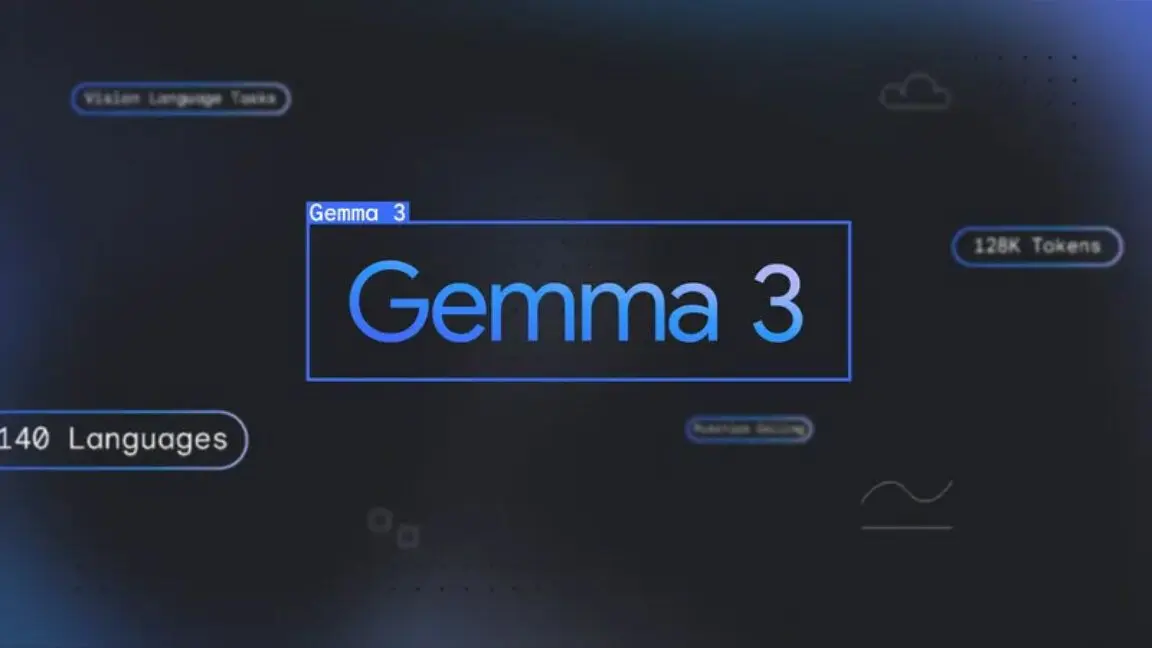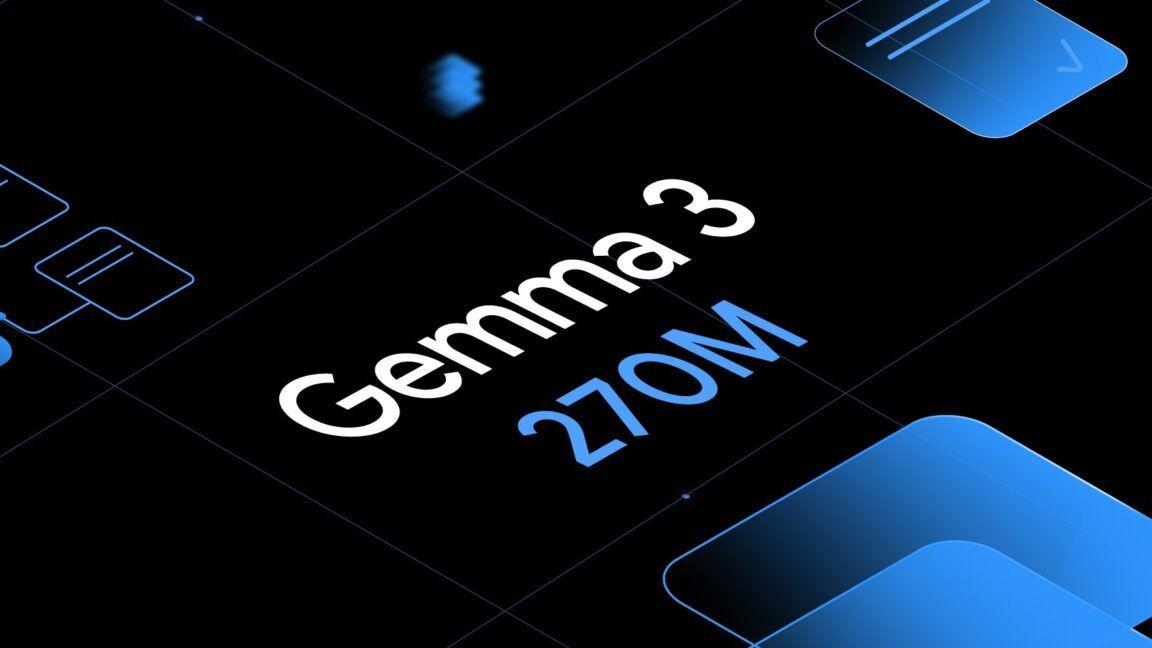Google's Gemma AI Models Reach 150 Million Downloads, Showcasing Growth in Open-Source AI
2 Sources
2 Sources
[1]
Google's Gemma AI models surpass 150M downloads | TechCrunch
Google's openly available Gemma collection of AI models has reached a milestone: over 150 million downloads. Omar Sanseviero, a developer relations engineer at Google DeepMind, announced the figure on X over the weekend, also revealing that developers have created more than 70,000 variants of Gemma on the AI dev platform Hugging Face. Google launched Gemma in February 2024, aiming to compete with other "open" model families like Meta's Llama. The latest Gemma releases are multimodal, meaning that they can work with images as well as text, and support over 100 languages. Google has also created versions of Gemma fine-tuned for particular applications, like drug discovery. While 140 million downloads in roughly a year is a head-turning metric, Gemma trails far behind Llama, perhaps its chief rival, which surpassed 1.2 billion downloads in late April. Worth noting is that Gemma, as well as Llama, has been criticized for custom, non-standard licensing terms, which some devs say have made using the models commercially a risky proposition.
[2]
Google: Gemma AI Model Surpasses 150 Million Downloads | PYMNTS.com
Google says its open-source AI model Gemma has been downloaded more than 150 million times. "Gemma just passed 150 million downloads and over 70k variants on Hugging Face," said Omar Sanseviero, a developer relations engineer at Google DeepMind, posted on X on Sunday (May 11) afternoon. He added that developers have created more than 70,000 variants of Gemma on the artificial intelligence (AI) developer platform Hugging Face. Google debuted Gemma, a series of lightweight, open-source models, in February of last year. As PYMNTS wrote at the time, analysts said these models could herald the arrival of a sleeker version of AI. The company has said that Gemma models are efficient for their size, surpassing bigger models such as Meta's Llama-2 in tests of reasoning, math and programming skills. "Smaller models are more portable and able to be deployed for a wider scope of use cases, such as remote operations or devices with limited local storage," Sam Mugel, the CTO of Multiverse Computing, told PYMNTS. "Reducing the overall size of these models also reduces the energy required to operate them." In related news, PYMNTS wrote last week about Google's effort to place ads inside AI chatbot conversations to protect its crucial ad search business, which accounts for a little more than half the company's revenue. Last month, Google commanded a 90% market share in search, according to StatCounter. The picture is flipped when it comes to AI chatbots: Google's Gemini holds a 2.3% share, while OpenAI's ChatGPT has 84.2 of the chatbot market. It's an example of Google facing the "innovator's dilemma," a concept developed by the late Harvard Professor Clayton Christensen to explain why successful companies often fail in the face of disruptive technologies. According to the theory, these incumbents often offer existing customers improved versions of what already works. Smaller firms that employ the new technology serve niche or small markets first before improving and going mainstream, taking over from the incumbent in the process. Kaveh Vahdat, president of marketing firm RiseOpp, told PYMNTS that Google's move is "less about short-term monetization and more about safeguarding its long-term control over the discovery layer of the internet." As users make the pivot to AI chatbots, Vahdat said, Google risks losing the behavioral data and ad real estate that uphold its business model. "By preemptively commercializing chatbot interactions, it is trying to reassert that control," he said. But doing so at a time when its market dominance is already under antitrust scrutiny could accelerate regulatory pressure."
Share
Share
Copy Link
Google's open-source Gemma AI models hit 150 million downloads, with developers creating over 70,000 variants. While impressive, it still trails behind Meta's Llama in adoption.

Google's Gemma AI Models Achieve Significant Milestone
Google's open-source Gemma AI models have reached a remarkable milestone, surpassing 150 million downloads since their launch in February 2024. Omar Sanseviero, a developer relations engineer at Google DeepMind, announced this achievement on social media platform X, highlighting the growing adoption of these AI models in the developer community
1
.Developer Adoption and Model Variants
The Gemma collection has not only seen widespread downloads but has also inspired significant innovation among developers. Over 70,000 variants of Gemma have been created on the AI development platform Hugging Face, showcasing the model's versatility and the active engagement of the AI community
2
.Gemma's Capabilities and Competition
Gemma models are designed to be efficient for their size, outperforming larger models like Meta's Llama-2 in various tests, including reasoning, math, and programming skills. The latest Gemma releases are multimodal, capable of working with both images and text, and support over 100 languages. Google has also developed specialized versions of Gemma for specific applications, such as drug discovery
1
.Comparison with Rivals
While Gemma's 150 million downloads in approximately a year is impressive, it still trails behind its main competitor, Meta's Llama model family. Llama surpassed 1.2 billion downloads in late April, indicating a significant lead in the open-source AI model space
1
.Advantages of Smaller Models
The success of Gemma highlights the growing importance of lightweight AI models. Sam Mugel, CTO of Multiverse Computing, emphasized that smaller models offer greater portability and can be deployed for a wider range of use cases, including remote operations and devices with limited local storage. Additionally, reduced model size translates to lower energy requirements for operation
2
.Related Stories
Challenges and Criticisms
Despite its success, Gemma, along with Llama, has faced criticism regarding its licensing terms. Some developers have expressed concerns that the custom, non-standard licensing agreements make commercial use of these models potentially risky
1
.Google's AI Strategy and Market Position
The success of Gemma is part of Google's broader strategy to maintain its position in the evolving AI landscape. While Google dominates the search market with a 90% share, it faces significant competition in the AI chatbot sector. Google's Gemini holds only a 2.3% share of the chatbot market, compared to OpenAI's ChatGPT, which commands 84.2%
2
.References
Summarized by
Navi
Related Stories
Recent Highlights
1
Pentagon threatens to cut Anthropic's $200M contract over AI safety restrictions in military ops
Policy and Regulation

2
ByteDance's Seedance 2.0 AI video generator triggers copyright infringement battle with Hollywood
Policy and Regulation

3
OpenAI closes in on $100 billion funding round with $850 billion valuation as spending plans shift
Business and Economy








